Family offices have evolved into complex entities, managing a broad spectrum of assets and responsibilities. According to a Deloitte Private report, family offices have seen considerable growth, with assets under management (AUM) expected to increase by 73% to $5.4 trillion by 2030.
To ensure optimal performance and the achievement of long-term goals, it is essential to appoint someone qualified to lead the entity. As an expert in family office recruitment, we would like to provide a guide on the leadership in a family office.
| THE LEADER IN A FAMILY OFFICE
This section explores the concept of a de facto leader within family offices. Our leadership studies indicate a lack of standardisation across these family offices, coupled with flatter hierarchies that blur traditional lines of authority. This is reflected in the various titles of leaders in a family office. We found that 42% carried the job title of Head of Family Office, a further third (36%) owned the title of either Managing Director, Managing Partner, or Executive Director, and 20% were called Chief Executive Officer (CEO), which is the most common title seen in the corporate world. This lack of standardisation can create confusion regarding responsibilities and duties.
Here, we would like to provide a brief job description of what a typical leadership role in a family office would look like.
| CHIEF EXECUTIVE OFFICER (CEO) / FAMILY OFFICE DIRECTOR
As the strategic lead, this role oversees all operations, sets strategic direction, and ensures alignment with the family’s goals.
While the overarching goal is to lead and manage the family office, the role is highly personalised and tailored to the specific needs, values, and goals of the family it serves. Unlike traditional corporate CEOs, family office CEOs/directors often work closely with family members on private matters extending beyond investment portfolios.

Key Responsibilities:
● Strategic vision
Developing and implementing strategies aligned with the family’s objectives.
● Day-to-day operation management
Overseeing the daily operations of the family office and ensure seamless execution of the family's interests.
● Investment oversight
Managing the family’s investment portfolio, including asset allocation, risk management, and performance evaluation.
● Governance
Ensuring compliance with regulatory requirements, governance structures, and ethical standards.
● Relationship management
Building and maintaining strong relationships with family members, external advisors, and service providers.
● Talent Management
Recruiting, developing, and retaining a high-performing team.
When a family office is considering hiring a leadership figure, there are several key factors to consider:
● Define the role
Clearly articulate the specific responsibilities, expectations and reporting structure for the position.
● Assess your needs
Identify the areas where the leader can provide the most value, whether it is investment management, governance or other aspects.
● Consider succession planning
Develop a plan for transitioning leadership to ensure continuity and stability.
● Engage a trusted advisor
Seek guidance from experienced professionals who can assist with the recruitment process and provide valuable insights.

“While the name 'family office' might suggest a preference for familial leadership, our research indicates that approximately 70% of family offices are currently led by non-family members”
Afterall, family offices are an extension of the family, finding a leader for one is not just about ticking all the boxes; it is about finding someone who can fit seamlessly into the culture. That means the leader must have a unique blend of financial acumen, leadership skills, strategic thinking and personal qualities that align with the family’s values.
| KEEPING IT IN THE FAMILY OR NOT?
While the name 'family office' might suggest a preference for familial leadership, our research indicates that approximately 70% of family offices are currently led by non-family members. It is believed that the increasing complexity of wealth management has driven the need for external specialised expertise.
As a recruitment firm specialising in the family office sector, we have witnessed a significant influx of highly qualified professionals from diverse backgrounds, including many senior and high-calibre individuals. In some jurisdictions, like Singapore, regulations even mandate the employment of non-family members.
There is a growing consensus that family offices must professionalise and institutionalise in order to be successful. In fact, 92% of family office leaders believe the most successful family offices have external hires in key leadership positions. Our previous survey revealed that while 58% of family office leaders plan to appoint a family member as their successor, 42% intend to look externally.
The preference for non-family leadership in family offices, while a growing trend, varies significantly across the globe. Our 2023 Global Family Office Compensation Benchmark report created in collaboration with KPMG highlighted these striking regional differences. We found that only 10% of US-based Family Offices have family members as CEOs, compared to 75% in the Middle East. The UK and Europe fall somewhere in between, with just under 30% of family office leaders coming from within the family.
Several factors contribute to these differences. In the US, the complex regulatory environment and the highly developed financial services sector have fostered a culture of professional management. As a result, we often see American family offices embracing structures with clear hierarchies and reporting lines. They tend to seek external expertise to navigate complex investment strategies and compliance requirements. Cultural norms and traditions also play a significant role in this preference. The Middle East, for example, often prioritises familial ties and trust, with family members seen as the natural custodians of the family's wealth and legacy. In Europe, the landscape is more diverse, reflecting the varying cultural and economic contexts of different countries. While some European family offices embrace professionalisation, others maintain a stronger emphasis on familial leadership, often balancing the two approaches.
The size and maturity of the family office can also be a factor. Family offices in their nascent stages, particularly in regions with a strong entrepreneurial tradition, may be more likely to be led by family members, especially the founder. As family offices grow and their investments become more complex, the need for specialised expertise often increases, leading to a greater likelihood of external hires.
“Family offices are designed to preserve and grow wealth, but wealth is only one component. Happiness, competency, and freedom are also crucial. Hiring externally can provide family members with fulfillment in their pursuits while ensuring the family office benefits from the best possible leadership”

Without the resources of large corporations, Family Offices often resort to hiring people they know or who know the family. At the same time, Family Offices need to be discrete so hiring someone they know very well can be a good idea. That being said, hiring your leader externally offers several advantages, professionalisation of wealth management, access to top-tier talent, staying ahead of market trends, successful portfolio diversification, and access to exclusive deals. External professionals can also bring best practices and efficient processes from benchmarked financial and professional services environments.
Family offices are designed to preserve and grow wealth, but wealth is only one component. Happiness, competency, and freedom are also crucial. Hiring externally can provide family members with fulfillment in their pursuits while ensuring the family office benefits from the best possible leadership. It facilitates growth and diversification, and strengthens values, allowing the family to enjoy its success and impact.
| HOW ARE FAMILY OFFICES BEING LED?
We would also like to note that leadership styles in Family Offices can vary across organisational structures, generations, and cultures.
There are two main types of Family Offices: A Single Family Office (SFO) and a Multi-Family Office (MFO). These differ not only in their structure and client base, but also in their approach to leadership and management.
SFOs are often guided by the founding family’s preferences, leading to personalised and familial leadership styles. As SFOs mature, their leadership may professionalise, with non-family executives assuming key roles to better manage the SFO’s growing complexity of responsibilities. On the other hand, MFOs cater to multiple families, which requires skillful leadership that can balance those families’ diverse interests. This demands strong relationship-management skills to navigate conflicts and satisfy the varied objectives of client families while ensuring operational efficiency.
We would also like to point out that first-generation and second-generation leaders in Family Offices tend to have different leadership approaches, perspectives and characteristics due to factors such as experience, upbringing and exposure to wealth management.
First-generation leaders are often strongly entrepreneurial, having founded or built the family office. Due to their firsthand understanding of the business’ operations and investments, this usually leads to a hands-on approach and deep involvement in day-to-day operations. They frequently display a higher risk tolerance coupled with significant decision-making autonomy, given their role as primary wealth creators.
Second-generation leaders typically inherit wealth. Many will be required to have a formal education in finance or related fields, to bring structure to management. They prioritise wealth preservation over creation, adopting a risk-averse or a more defensive stance and seek input from various stakeholders in decision-making processes. Concerned with long-term sustainability, they may implement governance structures and succession plans. Additionally, they often emphasise social impact, incorporating impact investing and philanthropy into the family office’s strategy to create positive social change alongside financial returns.
Cultural nuances can significantly shape family office leadership styles. In patriarchal societies, leadership may gravitate towards centralised figures, whereas egalitarian cultures encourage collaborative decision-making.

| FINDING THE RIGHT LEADER
As the custodian of a family’s wealth and legacy, leaders in a family office play a pivotal role in their success now and for years to come.
That being said, we understand that the question of who should lead a family office is complicated, with no right answer. While familial leadership might seem intuitive, the increasing complexity of wealth management, coupled with evolving family needs and global market dynamics, has driven a significant trend toward professionalising family office leadership.
Our research, along with industry insights, demonstrates the growing prevalence of external hires, particularly in regions like the US with sophisticated financial landscapes. We believe that as the family office space continues to evolve, embracing professionalisation and hiring external expertise will be essential for their continued success.
Ultimately, the ideal leader, whether a family member or an external professional, must possess a unique blend of financial acumen, strategic vision, strong relationship management skills, and a deep understanding of the family's values and long-term objectives.
The key to success lies in choosing the individual who is best equipped to navigate the complexities of the family’s circumstances, embodying the family’s value and vision, and safeguarding their wealth and legacy for future generations. This process often involves carefully defining the role, assessing the family's needs, considering succession planning, and engaging trusted advisors to ensure a thorough and effective search.

Paul Westall
Co-Founder and Director, Agreus Group.
agreusgroup.com

Tayyab Mohamed
Co-Founder, Agreus Group.
agreusgroup.com




